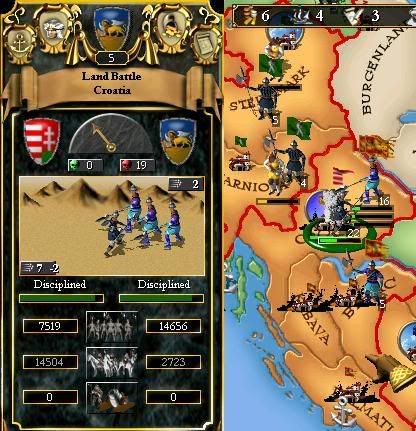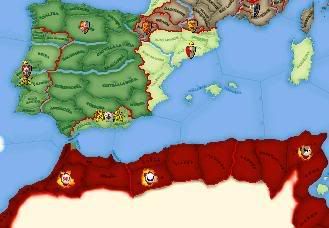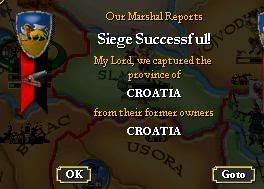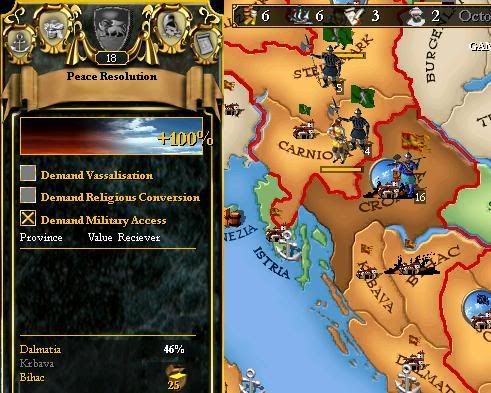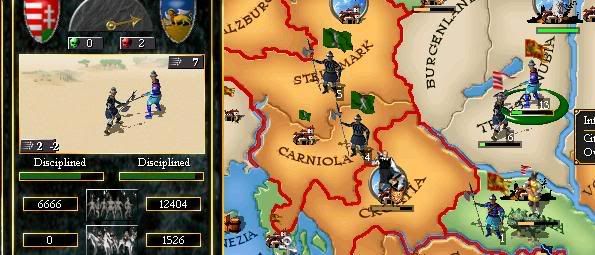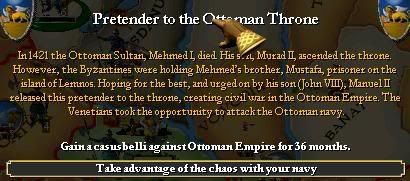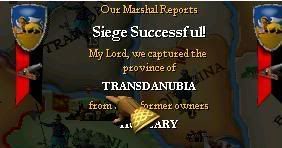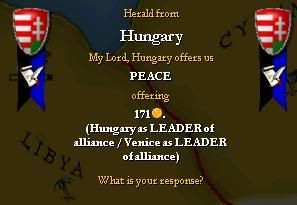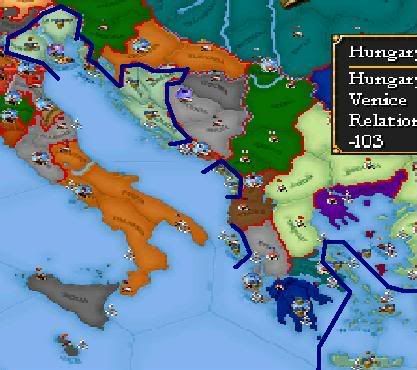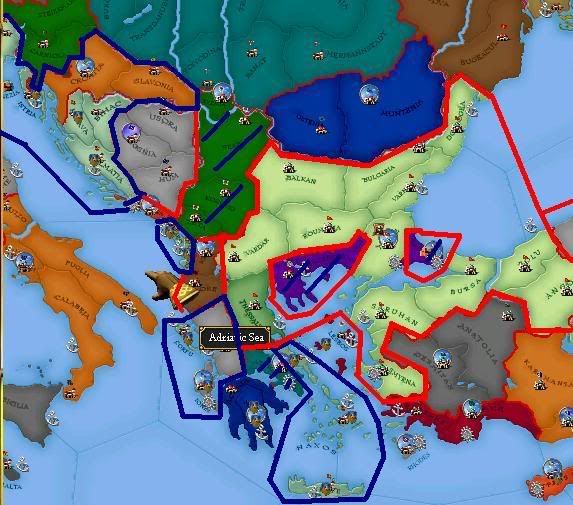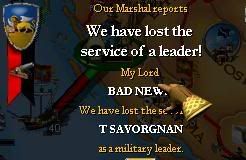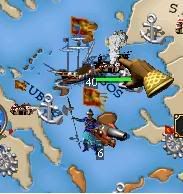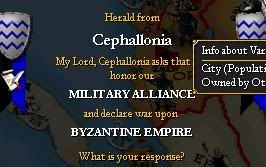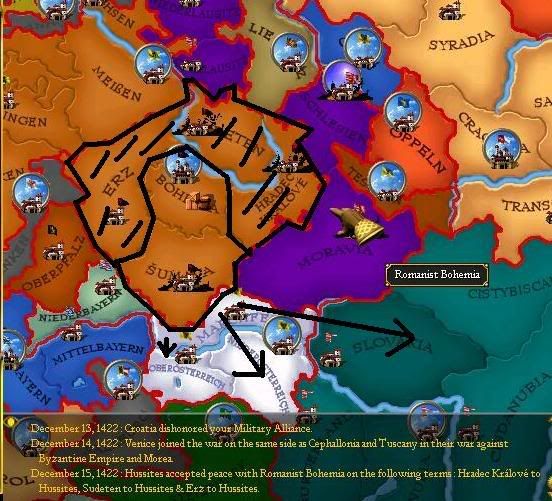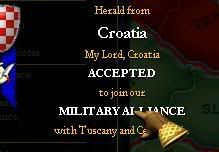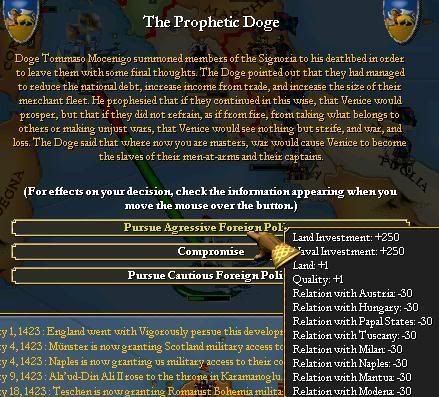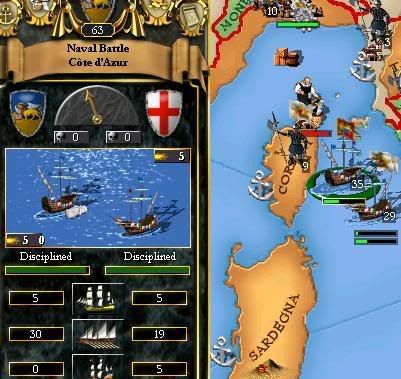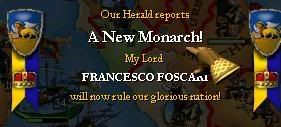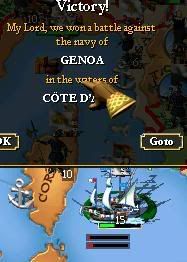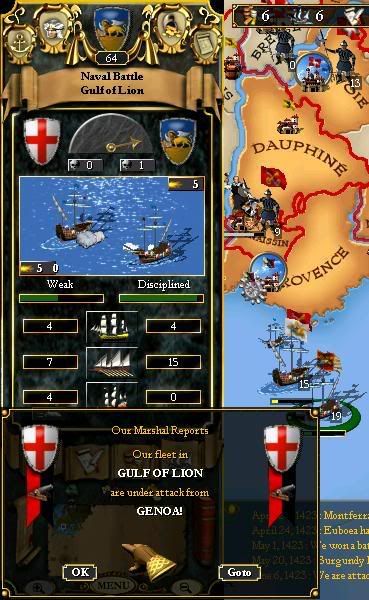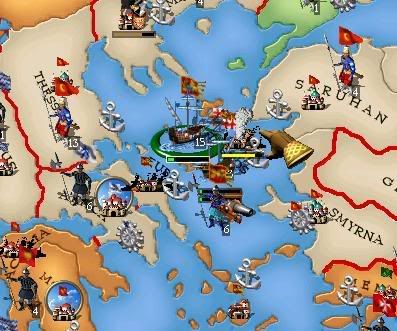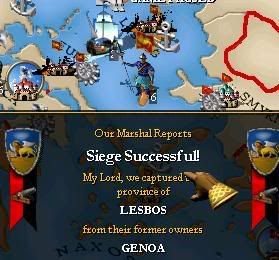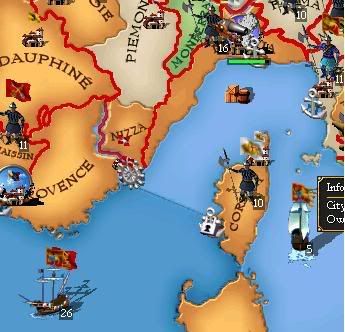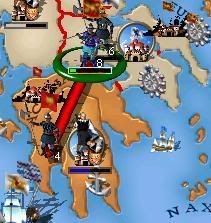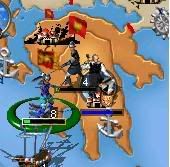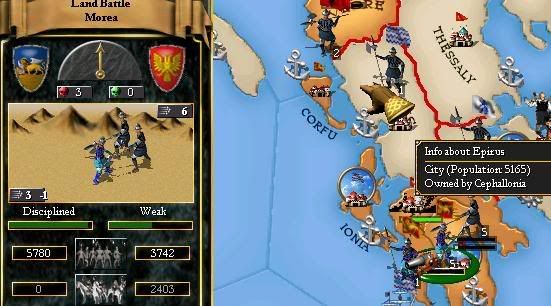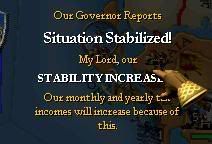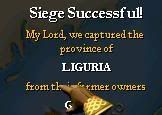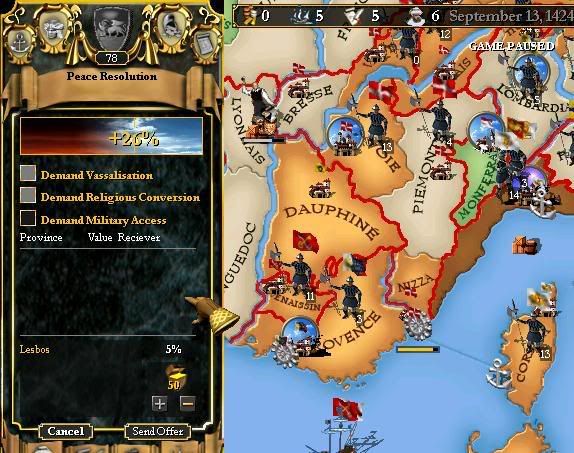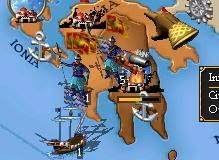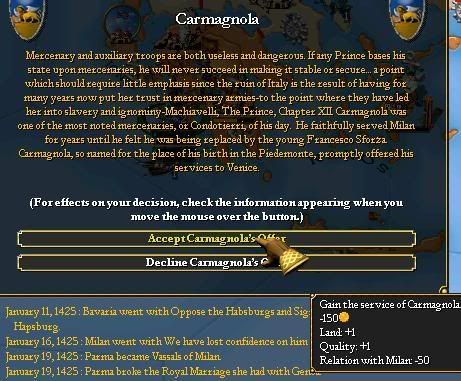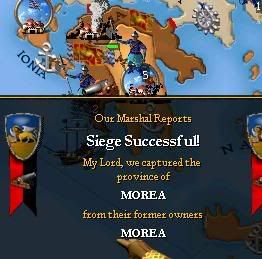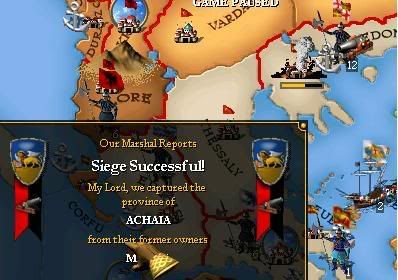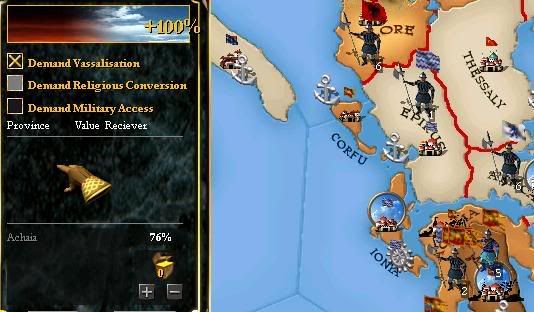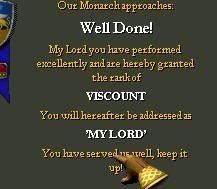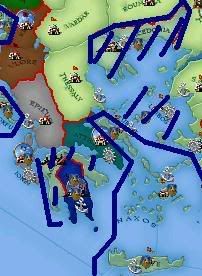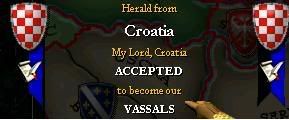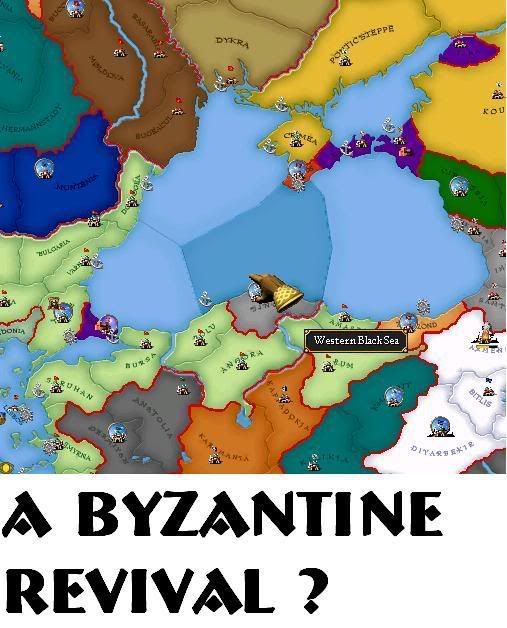Tani Coyote
Son of Huehuecoyotl
- Joined
- May 28, 2007
- Messages
- 15,191
Venice: From Mare Nostra to Terraferma, from Republic to Empire
1419:
Prologue:
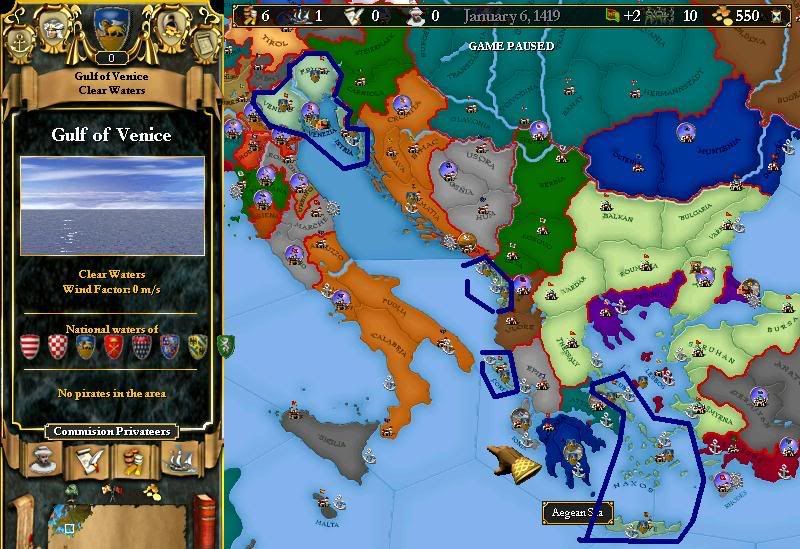
Venice begins as a large but vulnerable overseas empire. It is locked in a war against Hungary and Croatia for control of the Dalmatian coast, it faces competition in the Eastern seas from it's rival Genoa, and if it doesn't keep it's guard up, will fall victim of Ottoman expansion. The other small Italian states are so pre-occupied with their foolish ignorance of the overall balance of power in Europe that they would rather remain divided, then stand as a unified force against the ever-growing monarchies in Iberia and France - so an Italian unification is not likely in the beginning.
This is why the early decades of Venice's rise to greatness will be to occupy the Adriatic Sea, and eventually expand to cover Greece and possibly some of the Black Sea. This entails war with Genoa and the Ottomans - potent foes on sea and land, respectively. If the Italian Carthage can muster this, then it is possible for Venice to fund a massive campaign to end the petty quarrels in Italy that have existed for nearly a millenia - and re-establish Italy as the glorious nation it once was.
Hungaro - Venetian War:
The Doge's first decision is to reform taxes in the republic to improve the economy. As a result, tax collectors are promoted in all the provinces - except for the city of Venice itself, the republic had no real tax collection services...
The action was not cheap, however. It would take a year to fully install the system, and 45% of the nation's treasury was emptied in order to tax more efficiently. But we believed the system would pay off.
Now to the meat and potatoes.
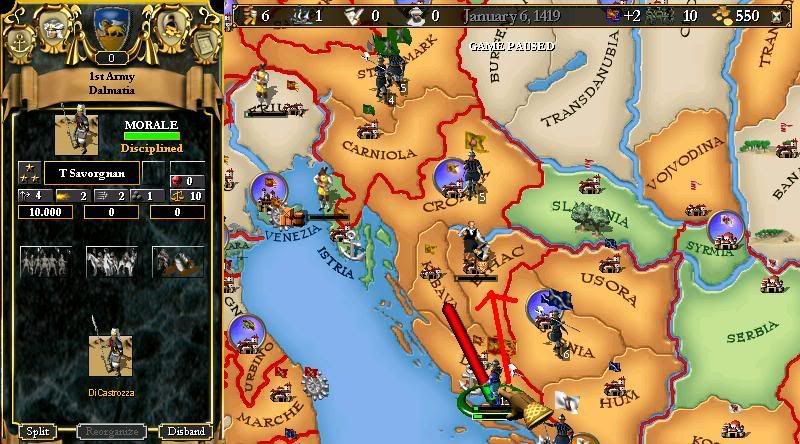
Under the command of Lt. General Savorgnan, 10,000 brave infantry are marching into the region of Krbava, which is held by Croatia. A smaller force of 5,000 cavalry is heading to the Bihac province in the north to further destablise the Croatians. The plan is to sieze primarily Dalmatia - but perhaps Krbava will make a healthy addition to the Venetian realm as well.
As our troops begin their advance, news reaches us about the nation of Ragusa: it has broken away from the Hungarian yoke! We would rush to gain the small country as an ally, but they are too poor and small to be of much use. We will conquer them given time, however, as the Serenissima must dominate the Adriatic. As a plus, Ragusa is also heavily destablised by canceling it's vassalage.
February heralds the arrival of our troops in the heart of Croatia. We anticipate the destruction of the Croatian realm.
We are attacked in Bihac by a regiment of Croatian cavalry, but they are defeated - they do harm our siegers enough to lift the siege on the region. We stay in Bihac to plunder it to weaken their war effort. Meanwhile, Krbava slowly starts to fall.
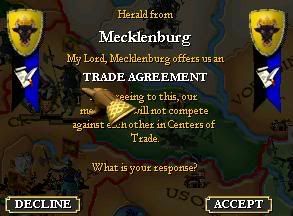
In May, we agree to a trade agreement with the German state of Mecklenburg. The Doge was too busy handling the war to get muddled in economic disputes.
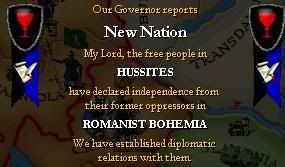
In late August, the radicals known as the Hussites break away from the Bohemian crown and plunge central Bohemia into chaos. We wonder if this heresy will draw Hungary's attention away from us....
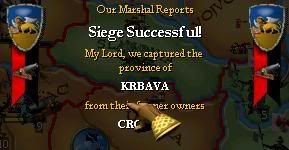
In September, we finally take Krbava. We also are heavily inflicting damage on Bihac with our new troops. Savorgnan is ordered to take Zagreb and end this war with Croatia. Once Croatia is defeated, we can focus on a white peace with Hungary.
As Winter approaches in December, we march victoriously into Croatia's central core. Zagreb is besieged, and the nation's ruler a prisoner in his own palace. We hear word of an approaching Hungarian force from the east - 22,000 men strong. Savorgnan's men dig in, ready to repel the threat.
And exactly on Christmas day, we get a great gift - Bihac! The city finally submits, leaving Croatia proper the last free bastion of the Croatian kingdom. The battle of Zagreb will determine the war for Dalmatia - and for Croatia as well.
1419:
Prologue:

Venice begins as a large but vulnerable overseas empire. It is locked in a war against Hungary and Croatia for control of the Dalmatian coast, it faces competition in the Eastern seas from it's rival Genoa, and if it doesn't keep it's guard up, will fall victim of Ottoman expansion. The other small Italian states are so pre-occupied with their foolish ignorance of the overall balance of power in Europe that they would rather remain divided, then stand as a unified force against the ever-growing monarchies in Iberia and France - so an Italian unification is not likely in the beginning.
This is why the early decades of Venice's rise to greatness will be to occupy the Adriatic Sea, and eventually expand to cover Greece and possibly some of the Black Sea. This entails war with Genoa and the Ottomans - potent foes on sea and land, respectively. If the Italian Carthage can muster this, then it is possible for Venice to fund a massive campaign to end the petty quarrels in Italy that have existed for nearly a millenia - and re-establish Italy as the glorious nation it once was.
Hungaro - Venetian War:
The Doge's first decision is to reform taxes in the republic to improve the economy. As a result, tax collectors are promoted in all the provinces - except for the city of Venice itself, the republic had no real tax collection services...
The action was not cheap, however. It would take a year to fully install the system, and 45% of the nation's treasury was emptied in order to tax more efficiently. But we believed the system would pay off.
Now to the meat and potatoes.

Under the command of Lt. General Savorgnan, 10,000 brave infantry are marching into the region of Krbava, which is held by Croatia. A smaller force of 5,000 cavalry is heading to the Bihac province in the north to further destablise the Croatians. The plan is to sieze primarily Dalmatia - but perhaps Krbava will make a healthy addition to the Venetian realm as well.
As our troops begin their advance, news reaches us about the nation of Ragusa: it has broken away from the Hungarian yoke! We would rush to gain the small country as an ally, but they are too poor and small to be of much use. We will conquer them given time, however, as the Serenissima must dominate the Adriatic. As a plus, Ragusa is also heavily destablised by canceling it's vassalage.
February heralds the arrival of our troops in the heart of Croatia. We anticipate the destruction of the Croatian realm.
We are attacked in Bihac by a regiment of Croatian cavalry, but they are defeated - they do harm our siegers enough to lift the siege on the region. We stay in Bihac to plunder it to weaken their war effort. Meanwhile, Krbava slowly starts to fall.

In May, we agree to a trade agreement with the German state of Mecklenburg. The Doge was too busy handling the war to get muddled in economic disputes.

In late August, the radicals known as the Hussites break away from the Bohemian crown and plunge central Bohemia into chaos. We wonder if this heresy will draw Hungary's attention away from us....

In September, we finally take Krbava. We also are heavily inflicting damage on Bihac with our new troops. Savorgnan is ordered to take Zagreb and end this war with Croatia. Once Croatia is defeated, we can focus on a white peace with Hungary.
As Winter approaches in December, we march victoriously into Croatia's central core. Zagreb is besieged, and the nation's ruler a prisoner in his own palace. We hear word of an approaching Hungarian force from the east - 22,000 men strong. Savorgnan's men dig in, ready to repel the threat.
And exactly on Christmas day, we get a great gift - Bihac! The city finally submits, leaving Croatia proper the last free bastion of the Croatian kingdom. The battle of Zagreb will determine the war for Dalmatia - and for Croatia as well.


